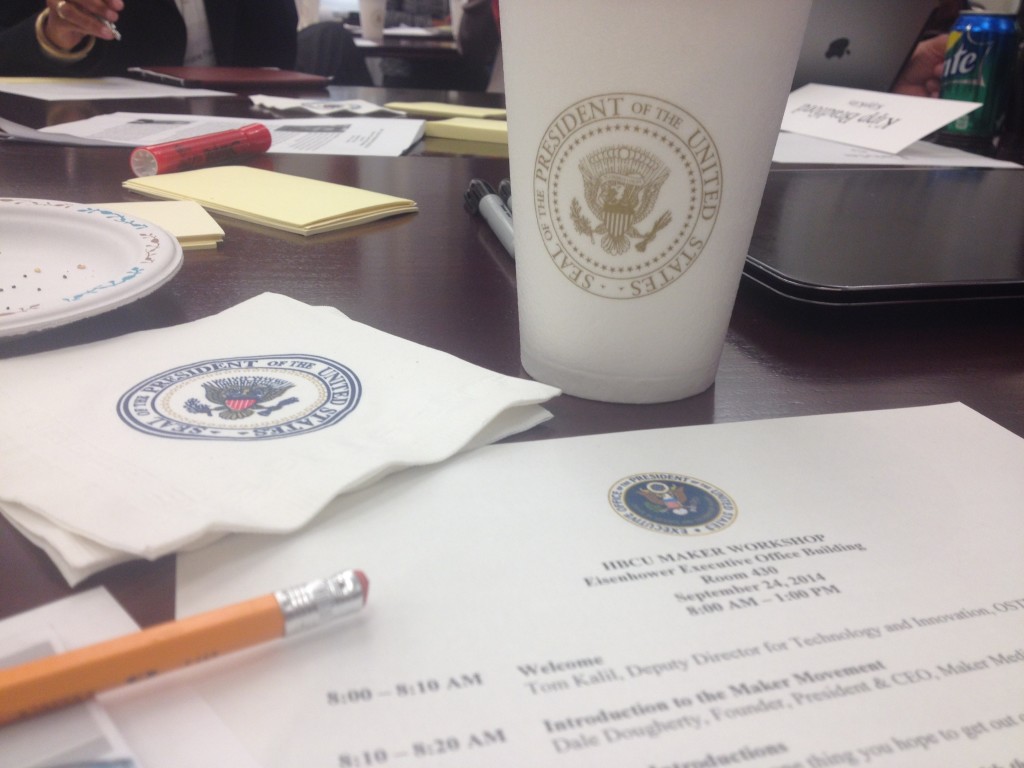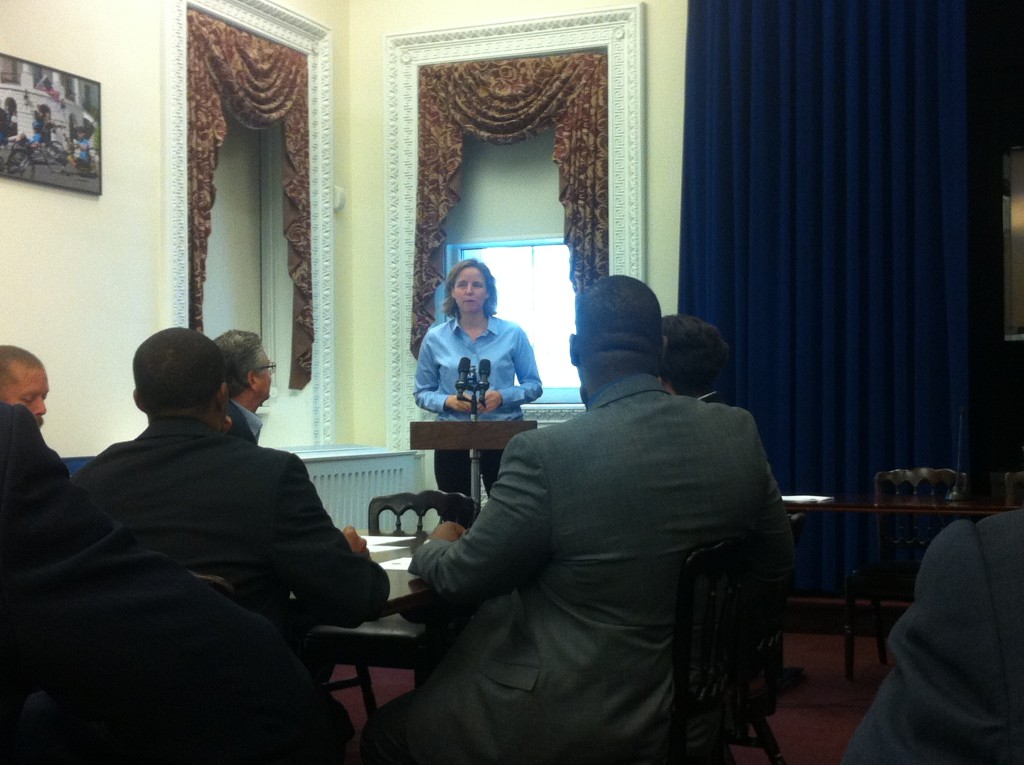Be the Hustle, Not a Part of it
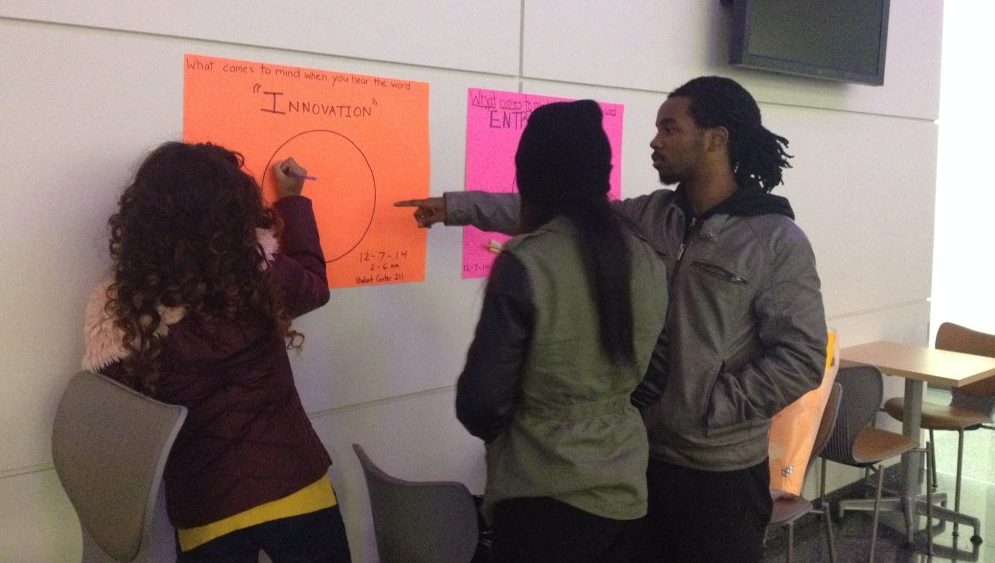
Students brainstorming in the School of Architecture.
by Jaime Arribas Starkey-El
University Innovation Fellow, Morgan State University
On December 7, the Sunday before the start of finals week, Morgan State University students gathered for the first ever Be Your Own Boss (BYOB) Summit. The four-hour event was planned and facilitated by the Morgan Entrepreneurship Society Executive Board and their faculty advisor.
In order to create buzz for the event, large neon brainstorming posters were strategically placed around Morgan State’s campus. The posters asked what came to mind when one heard words like Innovation or Entrepreneurship. The responses that were generated gave valuable insight into the creative minds of Morgan students, contributing significantly to the planning of BYOB.
The event kicked off with active sessions that cultivated a spirited, attentive, and friendly atmosphere. First was a modified game of rock, paper, scissors. The game showed students that just because you don’t have your way, doesn’t mean you can’t be a winner. Next, students were given random topics from “renewable energy” to “Kanye West” and asked to brainstorm what came to mind when they heard that word (similar to the posters placed around the school). The students then played an adapted version of musical chairs in which they mingled to gain new perspectives for their topics.

Attendees trading ideas for their topics
After a few rotations, attendees were asked “How might we draw connections between two card topics that may not typically be thought to relate?” Following this question, the students were split into random teams and tasked to form “creative collisions” for new venture ideas using their topics. After 10 minutes of synthesizing and devising, they then competed in a pitch competition. The winning group managed to turn “Nelson Mandela” and “Facebook” into an app that helps people find mineral markets in developing nations.
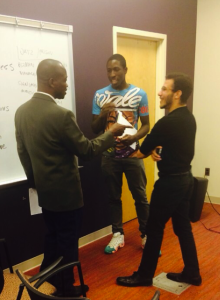
Attendees forming creative collisions.
That session was preceded by a presentation on Being Your Own Boss. Attendees explored the differences between a hustler and an entrepreneur and why they should strive to “be the hustle” rather than be a part of it. They were shown how the lean business model canvas serves as a framework for startups to discover a profitable, sustainable business. The attendees were also shown how the canvas could help them make efficient lifestyle choices, identify their major, volunteer their time, manage their budget, identify semester goals, or even choose a career. To conclude, they identified their startup type (small business, social, scalable, etc…) and learned about Moonshot ideas.
After the presentation, attendees participated in a lengthy entrepreneur/CEO panel discussion. The panel consisted of Marvin Johnson, a Morgan State alum who is the founder of an IT services firm, Justhink45, and Chiko Abengowe, the CEO and Founder of Perfect Office Solutions. Some key takeaways included the importance of building a strong network, maintaining a work-life balance, and identifying application-based platforms for managing ventures.
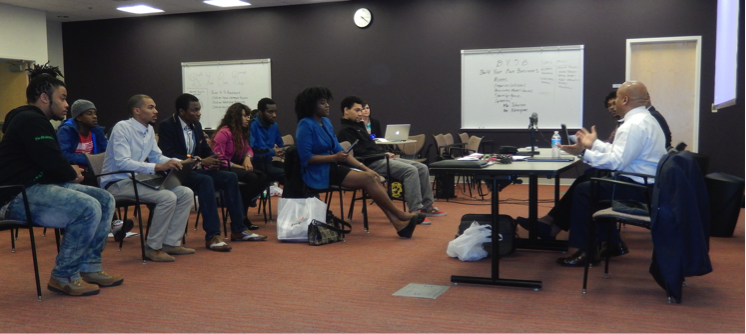
Entrepreneur Panel Session featuring Marvin Johnson of Justhink45 and Chiko Abengowe of Perfect Office Solutions.
All in all, the event was a success despite the creative constraints of a 2 week planning process and the removal of most of the brainstorming posters around campus. Both undergraduate and graduate students were in attendance and many majors were represented. It was good to see a lot of interdisciplinary collaboration taking place. The event showed students the power of working with like-minded colleagues in the realm of entrepreneurship. Students reported that they were inspired and never thought they could be so productive in such a short time. The BYOB is solid evidence that Morgan students are ready to participate in the creative economy, take direct control of their futures, and become their own bosses.
The Be Your Own Boss Summit was led by Morgan State University’s Entrepreneurship Society, below. Pictured left to right: Jaime Arribas Starkey-El (University Innovation Fellow), Iyanna Patterson (Secretary), Mareco Edwards (Treasurer), Chiko Abengowe (Perfect Solutions), Marvin Johnson (Justhink45), Mary Foster (Entrepreneurship Society Advisor), Adrien Feudjio (Vice President)
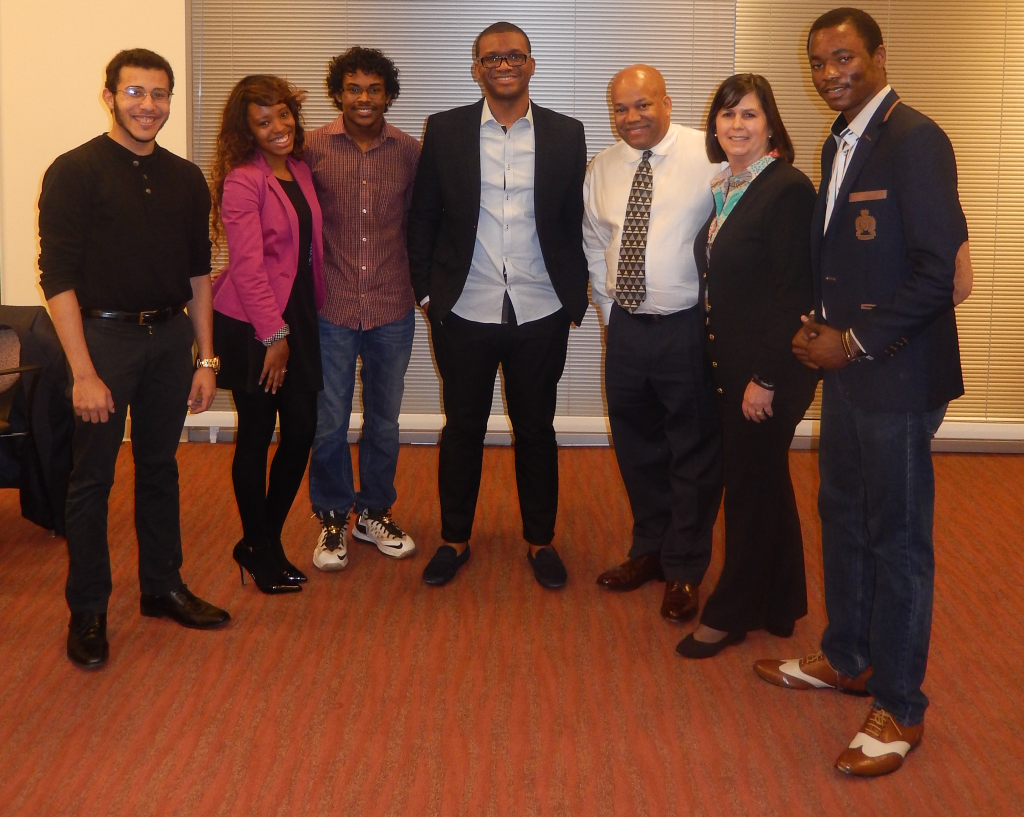
Morgan Entrepreneurship Society and guest speakers, Marvin Johnson and Chiko Abengowe.
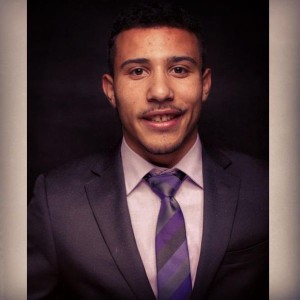 About the author:
About the author:
Jaime Arribas Starkey-El is a University Innovation Fellow at Morgan State University. Jaime has a strong passion for the possibilities of creativity and innovation. He loves to learn, he loves to discover, and he always wants to know more. As a Fellow, Jaime has worked to increase the innovative and entrepreneurial spirit on campus. His current goal is to bring a dedicated ICE (innovation, commercialization, and entrpreneurship) center to his campus. For more information, you can find a full bio here, along with his student priorities for Morgan State.


